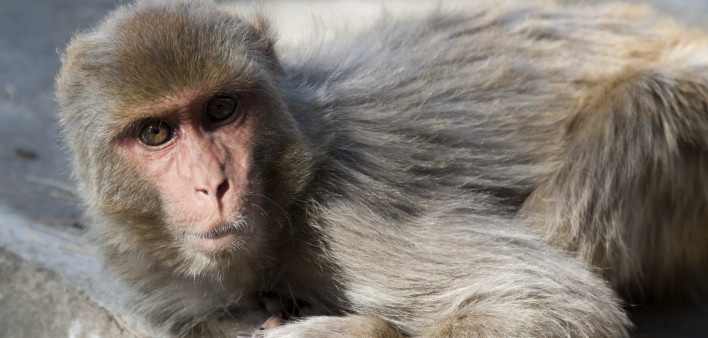An experimental HIV vaccine prompted an antibody-based response in monkeys that protected the animals against SHIV, an HIV-like virus engineered for scientific research in nonhuman primates.
Publishing their findings in the journal Immunity, researchers based their vaccine on the envelope protein on the surface of HIV, known as Env. Vaccine investigators have long struggled to develop a vaccine based on Env but have only recently found a way to stabilize the shape-shifting protein, which appears in clusters of three, known as trimers.
The study authors genetically engineered a more stable trimer, which they called SOSIP. In a previous study, the researchers injected this vaccine into rhesus macaque monkeys, which developed a range of levels of neutralizing antibodies to SHIV as a result. For the new study, the scientists revaccinated six monkeys that had developed low levels of neutralizing antibodies and six that had developed high levels. Twelve other monkeys served as control animals.
Next, the researchers exposed the monkeys to SHIV. They found that the vaccine successfully prevented infection among the animals that had developed high levels of neutralizing antibodies to the virus. This marked the first time a vaccine study achieved such a result in an antibody-based vaccine. Other researchers have pursued vaccines intended to prompt CD4 cells or other parts of the immune system to prevent infection.
The vaccine’s protection, however, waned during the months following its injection.
The study authors also made the first-ever estimate of the level of neutralizing antibodies required to prevent infection.
To read the study, click here.
To read a press release about the study, click here.







1 Comment
1 Comment